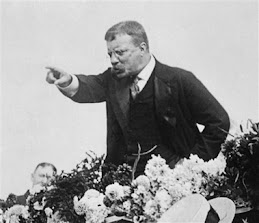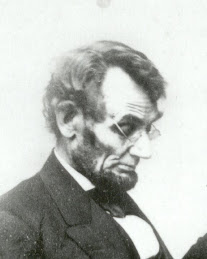People often speak of things that have moved them. Sometimes it's a song. To others, it's a well-crafted speech, delivered so impeccably that to change a word would be to change a note in a Mozart concerto.
To me, it can just as often be the written word. While there are few things that move me like the sheer strength of vibrato brought forth like a flood from the guttural depths of a man or woman blessed with the gift of song, there is simply nothing that manipulates the imagination like perfectly crafted prose.
It's such verse that makes us physically feel the sunny chill of the autumn air at a Saturday afternoon football game at some high school in Manitowoc. Can make us hear the din of voices familiar and new that surround us in a cocoon of warmth at a dinner table. Can make us feel the pain anew of a love unrequited. Or can make us relive the glorious moments of our firstborn son's first cry.
Rob Kaiser wrote such a column for the Post-Crescent of Appleton, Wis. It was about a dead soldier but yet, so much more. It was appropriately titled, "Soldier makes his final trip home."
Kaiser described everything that would've seemed so mundane on any other November day. But through every detail - the mileage on the hearse, the rain droplets attacking the windshield, the sob of a mother whose son will never again experience those mundane redundancies - Kaiser makes us realize this without saying it. Of all people, Darius Rucker of Hootie and the Blowfish once said of writing a beautiful song that you can say it's raining without saying it's raining.
While Kaiser could have seized the stage to spew forth any pro- or anti-war screed and had it taken to heart by those who agreed with it, he didn't. Nor did he point out to us that each of these details he pointed out to us was something we the living would experience in his stead.
He left it to us.
Just like the soldier's death leaves it to those left behind to cope with why. And how. And what now.
Without further adieu, I give you Rob Kaiser's account of a soldier's final ride:
Soldier makes his final trip home
A bit of ceremony, tears mark Neenah welcome for fallen Sgt. McDonald
MILWAUKEE -- First out of the cargo hold of Midwest Airlines Flight 305 was a baby stroller, then a child's car seat.
And then, slowly, through the labored machinations of a team of airline employees in orange vests, there emerged one end of a long white crate.
"That's it right there," Robert Karrmann said softly as he stared at the strange cargo through the rain-beaded windshield of the hearse he had driven onto the tarmac at General Mitchell International Airport.
Inside the crate was a casket: that containing the remains of Sgt. James W. McDonald, the Neenah native who was found dead the morning of Nov. 12 in his barracks at Fort Hood, Texas.
The final leg of McDonald's final trip home had begun.
In a shiny black Cadillac hearse with 70,000 miles on it, Karrmann drove McDonald's body Saturday afternoon from Milwaukee through the lonely brown sprawl of rural Wisconsin to Neenah, the town where he grew up, and, where, early this week, he will be buried. The two-hour trip under dull milky skies traversed the two worlds of Sgt. McDonald, who was at once a military man and the boy next door — "Our Own American Hero," as one welcoming banner read, but also, still and always, Little Jim from Irene Street.
Though McDonald didn't die in Iraq (the Army has not said how he died, so even his family doesn't know), his death and homecoming have brought the war to Neenah, which has had no problem taking the measure of McDonald and finding him a hero even though he didn't die in action.
Joan McDonald considers her son McDonald a casualty of war.
"Oh, so much," she said.
"Yes," McDonald's sister Jennifer added fiercely.
The family is awaiting a toxicology report, Joan McDonald said. Her son was taking a variety of medications because of a head injury suffered in a roadside blast in Iraq. "But even if it ends up being the medication, he wouldn't have been taking all that if he hadn't been injured," she said.
Not knowing doesn't really bother her — at least for now.
"Until this is over, I don't care," she said.
Saturday all that mattered was getting her son back where he belonged.
The homecoming of Sgt. McDonald, past fallow fields and silos and woods dotted orange with gun hunters stalking deer, was planned carefully.
Saturday morning as Karrmann waited for the family to arrive at the Westgor Funeral Home in Neenah so the procession could leave for the Milwaukee airport, he prepared for the long trip by sipping black coffee. The hearse, a rental from a local livery costing $125 for the day, waited outside as a gentle snow fell.
Karrmann, a short, slight man with an angular face, green eyes and short graying hair grooved with comb marks, shrugged on his black suit coat and parted the blinds with his hand to look outside.
"Well, looks like we have some interesting weather," he said.
The driver from Captain's Limousine Service who would take to the airport McDonald's family — parents, grandparents and sisters - drove up in a long black Hummer. He wore a black bow tie and a jacket with his name, David, embroidered over the right breast.
Karrmann was glad the Hummer was black. "I thought it was going to be white, but it's perfect that it's black. It matches."
What it matched was the hearse, which Karrmann calls "the coach."
The coach, which would be McDonald's last ride, was plush. The interior of the hearse was dark blue, the seats leather and supple and soft, the dashboard a shiny wood veneer.
Inside, the hearse smelled like leather. It smelled clean, too; the livery service makes sure it delivers these things freshly washed.
Finally, the family arrived and the procession left the funeral home.
As Karrmann steered the hearse out from under the canopy at the front of the funeral home, tiny snowflakes settled lightly on the windshield, turning to water and beading up on the glass. Karrmann turned on the wipers. The hearse was quiet on the road. The turn signal ticked like a metronome.
They headed down Church Street, the little flags on the front of the hearse snapping with ever more urgency. One of the flags was the American flag. The other was for the Army. The hearse passed the rail yard and turned onto Cleveland Street, where the procession stopped to pick up McDonald's grandparents at their little beige wood-frame house.
Karrmann, whose leg sometimes bounces anxiously as he's waiting for traffic to pass so he can turn, has been a funeral director for more than 10 years - ever since bailing out of the restaurant business, where being a manager sometimes required working 110-hour weeks. But this is different, what he's doing today. He's not handled a military funeral before.
"The notes, the notes, the notes," he said.
But there was also something else — a certain feeling.
At 12:05 p.m., Karrmann arrived at the airport. The plane was due in at 12:47.
Waiting on the tarmac behind the wheel of the hearse, Karrmann glanced over his right shoulder to see if the back of the coach was clean. The floor in the back was polished wood. The walls and ceiling were the same dark blue leather as is in the front.
Karrmann looked at his watch. 12:48.
"Here it comes," he said. A royal-blue jet pulled into view, turning left toward the jetway.
Karrmann and the hearse faced the white nose of the plane head-on, as did the limo sitting on the tarmac next to the hearse.
Karrmann got out. A Midwest employee approached him sheepishly. Sgt. McDonald's last plane ride had not been prepaid. Somebody owed the airline more than $400.
The white crate appeared as a woman in the plane peered down from a window.
Midwest employees cut the black nylon straps and lifted the crate. Sgt. 1st Class Toni Kaiser and Staff Sgt. Jeffrey Theal, wearing their Class A dress greens, fought the cold, stiff wind to drape the casket with an American flag as Joan McDonald sobbed, a hand to her mouth.
And then Midwest employees helped Kaiser, Theal and Karrmann lift the casket into the hearse for the ride home.
On the way, the rain turned to snow turned to sleet turned to rain. An urban industrial landscape gave way to sprawling fields and rolling hills and woods and billboards. The pale gray road rushed back and under the hood of the hearse, the dotted white line coming on forever.
When the procession arrived in Neenah, local firefighters and police joined the procession from a staging area at the old Big Lots, just off Exit 131 from U.S. 41.
Karrmann drove in front of the McDonald's little wood frame house on Irene Street, where about 50 friends and family lined the curb to greet the hearse. Many wept. Some saluted. A small child pressed his face to the window of a brick house.
The procession passed over a train, which wailed as it moved slowly west. And then it arrived at the funeral home.
After the casket was rolled inside, Karrmann stood still, blinking.
In the funeral director's eye stood a tear.
Wednesday, November 21, 2007
Subscribe to:
Post Comments (Atom)



1 comment:
It's not the first time I've seen that title. It's appeared too many times in newspapers all over the country.
Post a Comment